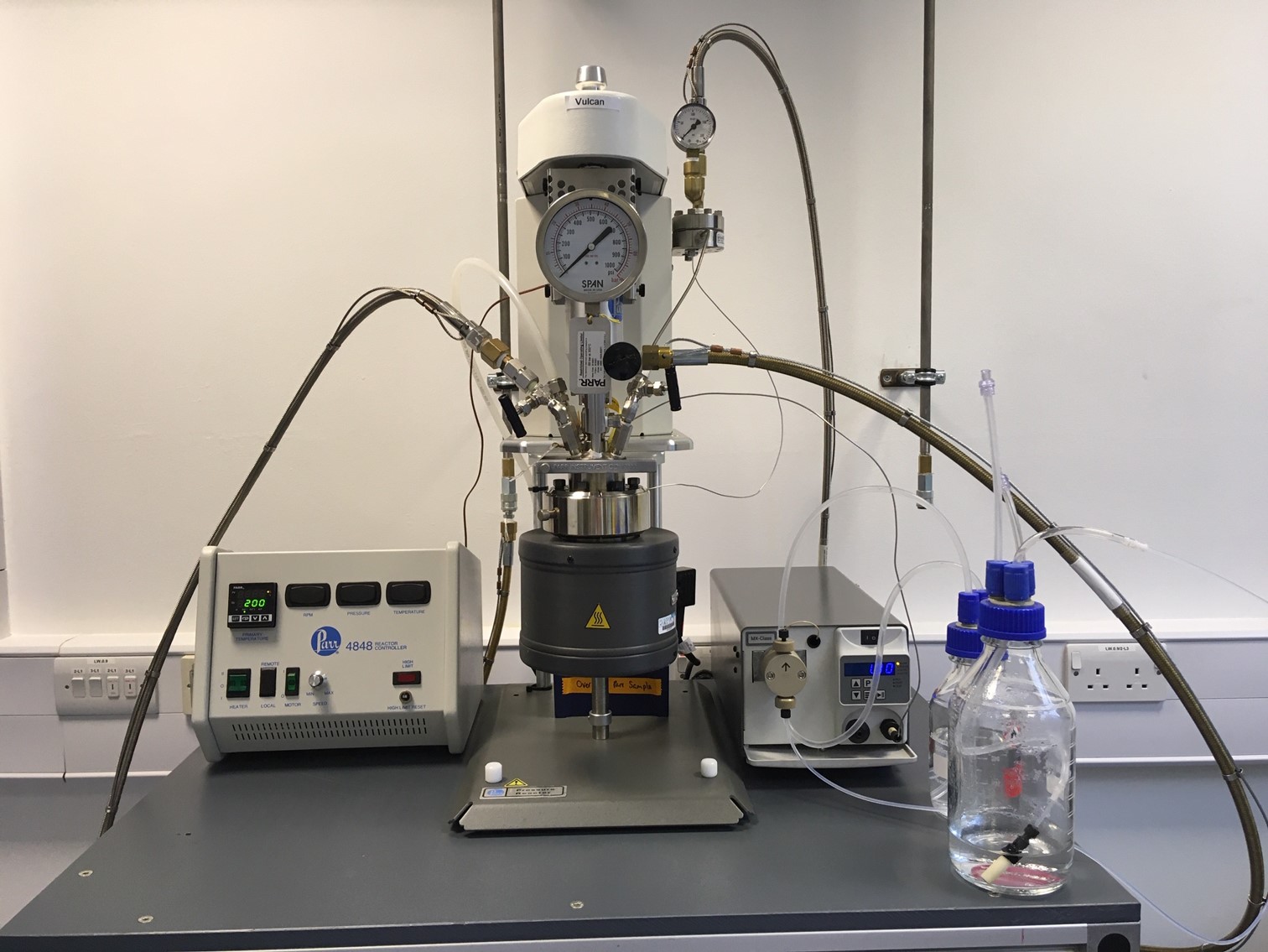You are here
- Home
- Facilities
- Environmental Simulations
- Flow-through Sub-surface Reactors
Flow-through Sub-surface Reactors

The AstrobiologyOU flow-through reactors are used to study both abiotic and biotic processes within the sub-surface environments of Mars and the icy moons, for example Europa and Enceladus. The flow-through capability allows fluid to continuous flow into the reactor, mimicking an open system, which is more realistic to the natural environment.
Description
The two reactors have been developed to study: 1) the martian sub-surface (MMS reactor); and 2) the ocean floor of the Icy Moons, e.g., Europa and Enceladus (IM reactor). The reactors can be run in dynamic (flow-through) or static mode with variable water-to-rock ratios. The overall set-up of the two systems is identical and involves a high-pressure reactor (Parr Instrument Company, UK) connected to a fluid cycling system and gas inlet, housed within a heating jacket. Abiotic and biotic experiments are routinely run in parallel, with microorganisms added to simulate biotic processes. For more information about the facilities see Olsson-Francis et al., (2020).
Specification
The standard specifications of both the martian sub-surface (MSS reactor) and the ocean floor of the icy moons (IM reactor) are shown below:
| MSS reactor | IM reactor | |
|---|---|---|
| Specification of the reactor | ||
| Model | 4566-T-FMD1(HC)-HC-230-VS.125-3000-4848-A1925E4-CE(PED) | 4545-T-FMD1-SS-230-VS.125-WJ-5000-A2110E-CE(PED) |
| Volume | 300 ml | 600 ml |
| Composition | Alloy C276 /316 SS | T316 Stainless Steel |
| Max and min temperature | Ambient to 350 °C | -20 to + 150 °Ca |
| Max and min pressure | 0 to 6.9 MPa | 0 to 34.5 MPa |
| Gas headspace | ||
| Composition | 10% CO₂ 40% H₂ 50% N₂ | 10% CO₂ 40% H₂ 50% N₂ |
| Regulator | Air Products R302 | Druva SS/1G SE(N6) |
| Tubing | ||
| Composition | Polyetherketone /Alloy C276 /316 SS | Polyetherketone/316 SS |
a Depending on the pressure
For more information, please read:
Olsson-Francis, K.; Ramkissoon, N. K.; Macey, M.; Pearson, V. K.; Schwenzer, S. P. and Johnson, D. N. (2020). Simulating microbial processes in extraterrestrial, aqueous environments. Journal of Microbiological Methods, 172, article no. 105883. Available at https://doi.org/10.1016/j.mimet.2020.105883
Ramkissoon, N. K., Macey, M. C., Kucukkilic-Stephens, E., Barton, T., Steele, A., Johnson, D. N., Stephens, B. P., Schwenzer, S. P., Pearson, V. K., and Olsson-Francis, K. (2024) Experimental Identification of Potential Martian Biosignatures in Open and Closed Systems. Astrobiology (early access). Available at: https://doi.org/10.1089/ast.2023.0013
Contact
For all enquiries please visit our Contact page